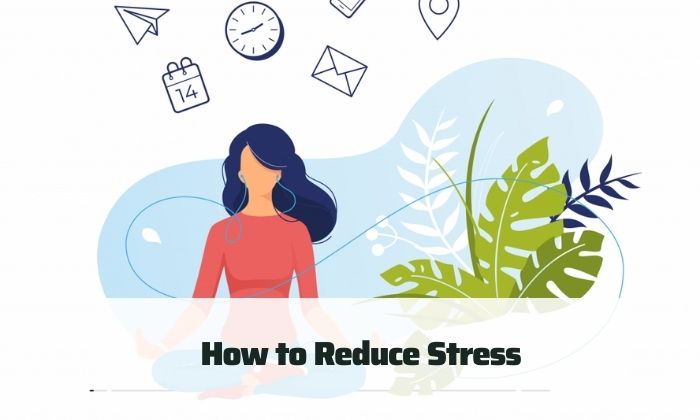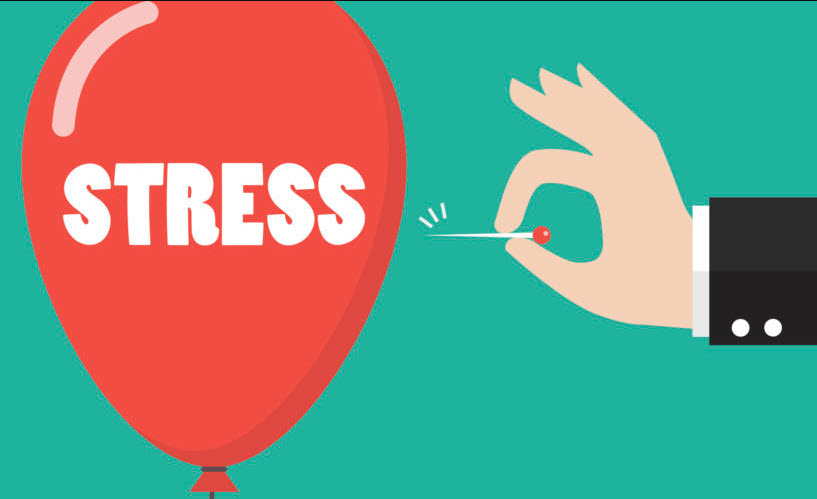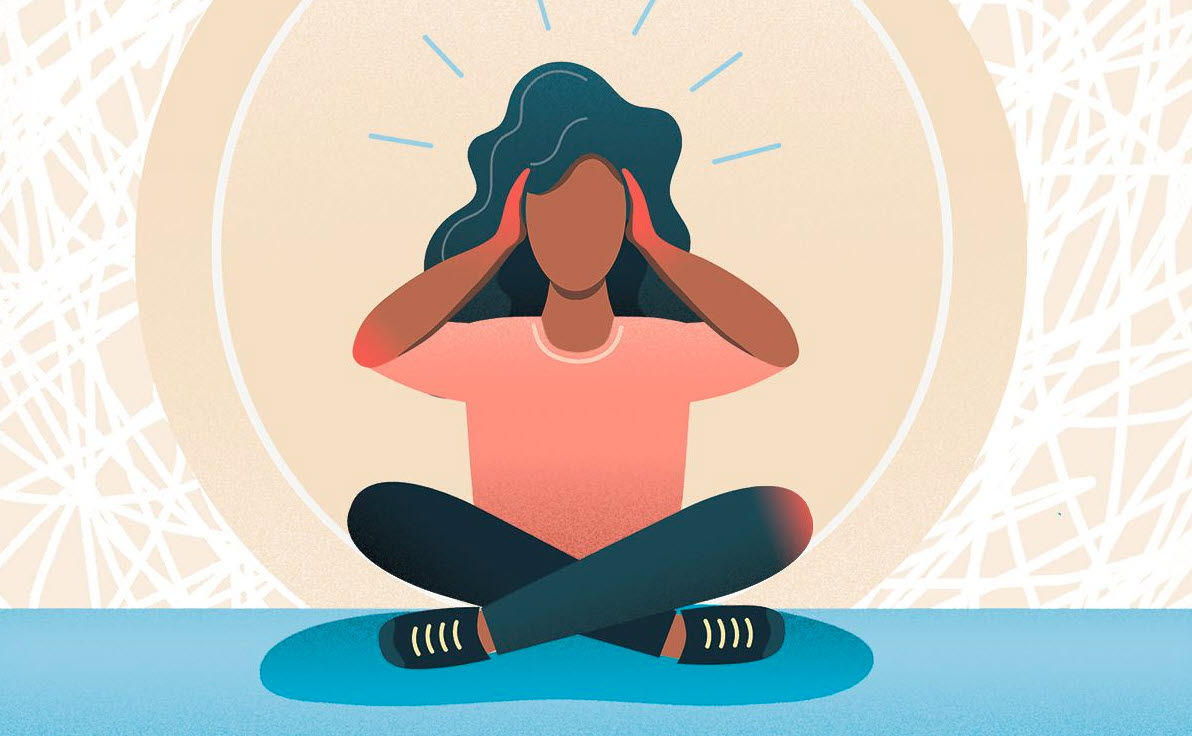How to Reduce Stress – Some Effective Methods

It’s difficult not to feel overwhelmed now and then. You can become overly stressed and occupied with job, family, and other commitments. However, you must set aside time to relax or your mental and physical health may suffer.
It takes practice to learn how to regulate your stress, but you can — and should — do it. Here are ten strategies to help you know how to reduce stress.

How to Reduce Stress
1. Tips to manage stressful situations
Biological stress is a relatively new discovery, which may surprise you. Hans Selye, an endocrinologist, was the first to identify and document stress in the late 1950s.
Stress symptoms existed long before Selye’s studies, but his findings sparked additional research that has helped millions of people manage with stress. We’ve produced a list of the top ten stress-relieving activities.
Listen to music
Take a moment and listen to relaxing music if you’re feeling overwhelmed by a difficult scenario. Playing soothing music has a calming effect on the brain and body, lowers blood pressure, and lowers cortisol, a stress hormone.
We recommend Yo-Yo Ma playing Bach on the cello, but if classical music isn’t your thing, listen to ocean or nature noises instead. They offer similar soothing benefits as music, which may sound clichéd.
The award-winning Calm app can help you manage your anxiety. To help you focus and relax, try a guided meditation, a bedtime story, or expert-designed stretches. Begin your risk-free trial today.
Talk it out with a friend
Take a pause when you’re stressed to call a friend and talk about your difficulties. A healthy lifestyle necessitates good interactions with friends and loved ones.
When you’re under a lot of stress, they’re very crucial. Even if it’s only for a minute, a soothing voice might help put things in perspective.
Talk yourself through it
It is not always possible to phone a friend. If this is the case, gently talking to yourself can be a good substitute.
Don’t be concerned about appearing insane; simply tell yourself why you’re upset, what you need to do to finish the work at hand, and, most importantly, that everything will be fine.
Eat right
Stress levels and a healthy diet go hand in hand. When we’re stressed, we often forget to eat wisely and rely on sugary, fatty snack meals to get us through the day.
Avoid sugary snacks and prepare ahead of time. Fruits and vegetables are always beneficial, and seafood high in omega-3 fatty acids has been demonstrated to alleviate stress symptoms. Tuna sandwiches are fantastic brain fuel.
Laughter releases endorphins, which boost mood and lower stress hormones like cortisol and adrenaline. Your neurological system is tricked into making you joyful when you laugh.
Watch some classic Monty Python skits like “The Ministry of Silly Walks,” for example. You’ll soon be laughing out loud rather than cracking up because those Brits are so funny.
Drink tea
Caffeine produces a temporary increase in blood pressure when consumed in big doses. Your hypothalamic-pituitary-adrenal axis may also go into overdrive as a result.
Try green tea instead of coffee or energy drinks. It includes beneficial antioxidants and theanine, an amino acid that has a relaxing impact on the nervous system, and contains less than half the caffeine of coffee.
Be mindful
The majority of the suggestions we’ve made provide instant relief, but there are several lifestyle adjustments that can be more helpful over time. The notion of “mindfulness” has recently gained popularity as part of contemplative and somatic treatments to mental health.
These mindfulness techniques, which range from yoga and tai chi to meditation and Pilates, include physical and mental exercises to prevent stress from becoming a problem. Consider enrolling in a class.
2. Exercise (even for a minute)
Exercise does not always imply heavy lifting in the gym or marathon preparation. In a tense scenario, a short walk around the office or even standing up to stretch during a work break might provide immediate comfort.
Getting your blood flowing releases endorphins, which can instantly enhance your mood.
Sleep better
Everyone is aware that stress can lead to sleep deprivation. Sleep deprivation is, unfortunately, a major source of stress. The brain and body become out of sync as a result of this vicious cycle, which only gets worse over time.
Make sure you get the seven to eight hours of sleep that your doctor recommends. Before going to bed, turn off the TV, dim the lights, and take some time to relax. It’s possible that it’s the most effective stress reliever on our list.
Breathe easy
When it comes to stress, the suggestion “take a deep breath” may seem cliched, but it’s real. Buddhist monks have been aware of deliberate breathing during meditation for generations.
Sit up in your chair with your feet flat on the floor and your hands on top of your knees for a quick three- to five-minute workout. Slowly and deeply inhale and exhale, focusing on your lungs as they expand entirely in your chest.
Deep breathing oxygenates your blood, helps you center your body, and clears your thoughts, whereas shallow breathing increases stress.

Long-Term Stress-Relief Strategies for Lasting Health
Certain practices can help you cope with stress and improve your overall health. Those who exercise or meditate on a regular basis, for example, are less worried when confronted with a challenging problem.
As a result, it’s critical to develop a lifestyle that will assist you in avoiding stress and dealing with obstacles in a healthy manner.
Eat a Balanced Diet
A bad diet can make you more receptive to stress. Emotional eating and grabbing for high-fat, high-sugar foods may bring a short-term sensation of relief, but they will only add to your long-term stress.
Cookies and potato chips, for example, can trigger a blood sugar increase. When your blood sugar levels drop, you may feel more stressed and anxious.
A balanced diet might help you deal with stress in the long run. Mood management and energy balance are aided by foods like eggs, avocado, and walnuts.
Make Time for Leisure Activities
Recreational activities can be a great way to de-stress. Many people, on the other hand, believe that their lives are too hectic for hobbies, games, or extra fun.
However, including leisure time in your schedule may be crucial to feeling your best. And because you’ll perform better if you’re feeling better, leisure time may help you work more efficiently.
Hobbies and leisure are essential for living your best life, whether you enjoy gardening or making quilts.
Develop a Positive Self-Talk Habit
It’s important how you speak to yourself. Self-doubt, harsh self-criticism, and doomsday prophecies aren’t useful. You’ll stress yourself out if you’re continually thinking things like “I don’t have time for this” and “I can’t stand this.”
It’s critical to practice talking to oneself in a more realistic and sympathetic way. Respond with gentler inner dialogue when you call yourself names or doubt your capacity to accomplish.
Positive self-talk can aid in the development of a more positive mindset. Additionally, having an upbeat and empathetic talk might assist you in managing your emotions and taking constructive action.
Practice Yoga
Yoga incorporates physical movement, meditation, mild exercise, and controlled breathing, all of which help to reduce stress. While a single yoga session is likely to provide instant advantages, incorporating yoga into your life on a regular basis is likely to provide long-term benefits.
Yoga has numerous physical, psychological, and spiritual advantages. You may start by taking a class, enrolling in an online program, or using an app to help you get started.
Express Gratitude
Gratitude aids in the recognition of all the things for which you are grateful. Consider all the excellent things you have in your life, whether you’re glad for a beautiful day or that you arrived at work safely.
Gratitude also reminds you of all the tools you have at your disposal to deal with stress, which can be extremely liberating. According to studies, those who are appreciative have better mental health, less stress, and a higher quality of life.
Make gratitude a regular habit, whether you decide to recognize what you’re grateful for as you sit around the dinner table or you decide to write down three things you’re grateful for in a gratitude journal every day.
Prioritize Exercise
Physical activity is essential for stress management and mental health improvement. And the best part is that there are a variety of activities that might help you relax.
Join a gym, take a class, or go for a walk. Keep in mind that there are numerous strategies to increase your daily physical exercise. Walking, strength training, kayaking, hiking, and spin class are just a handful of the stress-relieving activities available.
The bottom line
Although stress is an inescapable aspect of life, it has a negative impact on your physical and emotional well-being. Fortunately, there are some evidence-based practices that can help you reduce stress and enhance your overall mental health.
Exercising, practicing mindfulness, spending time with a pet, limiting screen time, and spending more time outside are all beneficial strategies. See more useful article at my website y2kcenter.org




